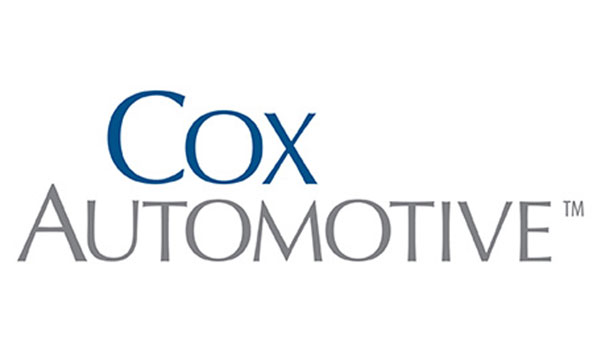The customer traffic index and profit index saw statistically significant gains from Q1, reaching and tying the highest levels in survey history respectively.
Atlanta, GA – According to data from the Q2 2019 Cox Automotive Dealer Sentiment Index (CADSI) released recently, U.S. auto dealer sentiment is similar to the first quarter as the overall current market index remained in negative territory. The current market index – a measure of business conditions in Q2 2019 – rose one point to 49, which is not a statistically significant increase. Again this quarter, the index shows that slightly more dealers feel the current market is weak compared to those who feel the current market is strong.
Improvements in key drivers supported the slight upturn in the current market view. The customer traffic index, reflecting expected seasonality, and profit index both saw statistically significant gains from Q1. Meanwhile, the costs index saw a decline. The traffic index is at its highest level ever and the profit index is tied with its highest reading, while the cost index is at its lowest point, dating back to the start of the survey in Q2 2017.
“The overall view of the market is remarkably stable this spring relative to the beginning of the year,” said Cox Automotive Chief Economist Jonathan Smoke.
Moderating cost pressures, less concern with market conditions and interest rates, and fewer challenges from regulations are the key measurable differences relative to this time last year.
Expectations for the next quarter fell but remained in positive territory at 55. The decline was driven by a big drop in expectations by independent dealers. By contrast, expectations for the next 90 days were unchanged among franchised dealers.
Contrast Seen in New- and Used-Vehicle Inventory and Sales Levels
Based on the way dealers describe the market, used-vehicle sales saw gains in Q2 from Q1 but remained similar to year-ago levels. The index on used-vehicle inventory, however, fell and was noted as declining, which was a reversal from the growth trend last quarter. That trend draws into question whether strong used-vehicle sales can continue as inventories tighten.
New-vehicle sales were stable compared to last quarter and last year, but new-vehicle inventory is growing. The new-vehicle market is an interesting contrast to the used market, as the used market is stronger and improved quarter over quarter. Used-vehicle inventory is also declining while new-vehicle inventory is expanding.
“It is encouraging to see that dealers remain optimistic,” Smoke added. “But their outlook has moderated substantially from the peak in optimism we saw last year as numerous negative factors continue to dampen future expectations. If market strength is being driven by used vehicles, can used-vehicle sales remain strong considering declining inventory? That’s a concern to watch in the coming months.”
Cox Automotive Dealer Sentiment Index
Derived from a quarterly survey that Cox Automotive issues to a representative sample of franchised auto dealers – new-car dealers – and independent auto dealers from around the country, the CADSI measures dealer perceptions of current retail auto sales and sales expectations for the next three months as “strong,” “average” or “weak.” The survey also asks dealers to rate new-car sales and used-car sales separately along with a variety of key drivers including consumer traffic. Responses are used to calculate an index by which any number over 50 indicates that more dealers view conditions as strong rather than weak. When an index is below 50, overall sentiment is negative.
You can download the full results of the Q2 2019 Cox Automotive Dealer Sentiment Index: https://www.coxautoinc.com/market-insights/cox-automotive-dealer-sentiment-index-second-quarter-2019/
Top Factors Holding Back Business
The top five factors holding back the business across all dealers remained the same in Q2 as Q1, but relative positions changed. Market conditions remained in the top spot as the most cited negative factor with 40% of dealers (down from 45% in Q1) citing market conditions as holding back their business. Competition remained in second place. Limited inventory jumped up to third spot, moving ahead of credit availability for consumers and expenses. Expenses moved down to fifth place.
Interest rates and consumer confidence were both cited less frequently by franchised dealers in Q2. Staff turnover and credit availability for consumers rounded out the top 5 for franchised dealers.
For independents, market conditions remained in the top spot with 40% citing it. Limited inventory moved up into the second spot as competition remained number three. Credit availability for consumers slid to the fourth negative factor, while expenses remained in the fifth spot. The biggest changes in the percentage of independents citing negative factors were declines in dealers citing interest rates and consumer confidence and increases in those citing tax law changes.
Expected Impact of New Tariffs Differ by Dealer Type
In the second quarter survey, dealers were again surveyed on expectations of the impact of proposed new auto import tariffs on business profitability in the future. The results were statistically similar to last quarter with only two exceptions—more independents and more dealers in low tax states expect that tariffs could have a positive impact by making the auto market stronger overall. The majority of franchises, however, continue to expect a negative impact on their business and profitability from a new tariff on imported automobiles and parts, and their principal concerns are about higher prices.
When asked about tariffs on imported vehicles and parts, 36% of dealers in total and over half of the franchised dealers expect them to have a negative impact on their business’ profitability next quarter if tariffs are imposed. An index score of 28 for franchised dealers would rank the impact of tariffs as the most negative factor across franchised dealers’ perceptions.
Among those expecting a negative impact, top reasons include higher prices on all used and imported vehicles. The top concerns vary by independent and franchised dealers. The majority of independent dealers indicate higher prices on all used vehicles is a major concern, while top concerns for franchised dealers are higher prices on imported vehicles and all new vehicles overall.
Cox Automotive Dealer Sentiment Index Methodology
Data for the Cox Automotive Dealer Sentiment Index is gathered via online surveys. The Q2 results were based on 1,031 dealer respondents (583 franchise / 448 independent) across the country fromApril 29 to May 14, 2019. Dealer responses were weighted by dealership type and volume of sales to be representative of the national dealer population.
Links:
Cox Automotive


